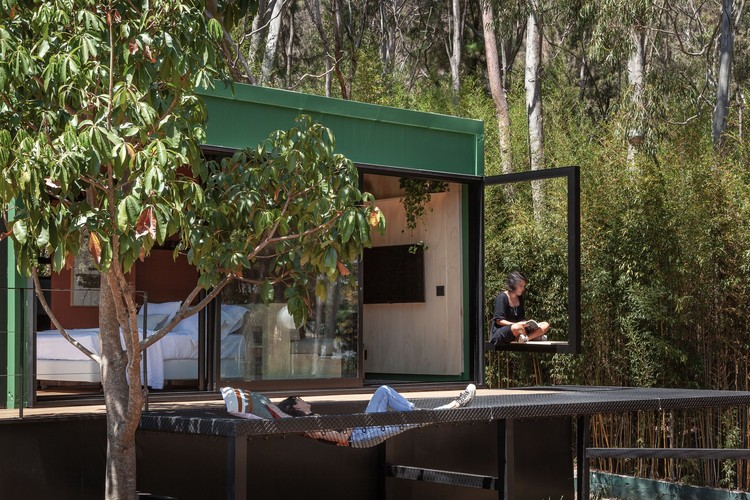
-
Architects: plano livre
- Area: 30 m²
- Year: 2021
-
Photographs:Henrique Queiroga
-
Manufacturers: Allum & Vetro Vidraçaria, Arte Persa, Ateliê da Vila, Bellar Acabamentos, Coral, Deca, Francisco Oliveira Design, GALERIA MURILO CASTRO, Handë Móveis, Hogar, Horto dos Buritis, Lafaete Locações, Marei Móveis, Micheliny Martins, NewTechWood, Nui Nui, Prima Linea, Prática Consulte Vendas, Rede Plus, Templuz, +2

Text description provided by the architects. The architectural design of Estúdio Lapinha was conceived to be executed in two stages. The first was the construction of a modular housing inside two containers, exhibited at CASACOR Minas 2021. The second will be completed after its disassembly and reassembly in Lapinha da Serra, where it will serve as accommodation.































